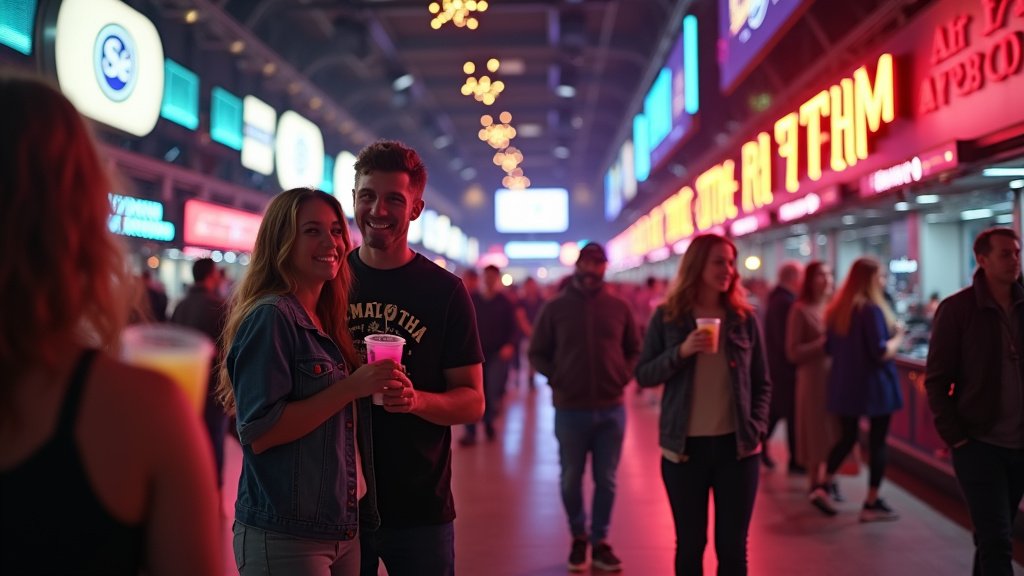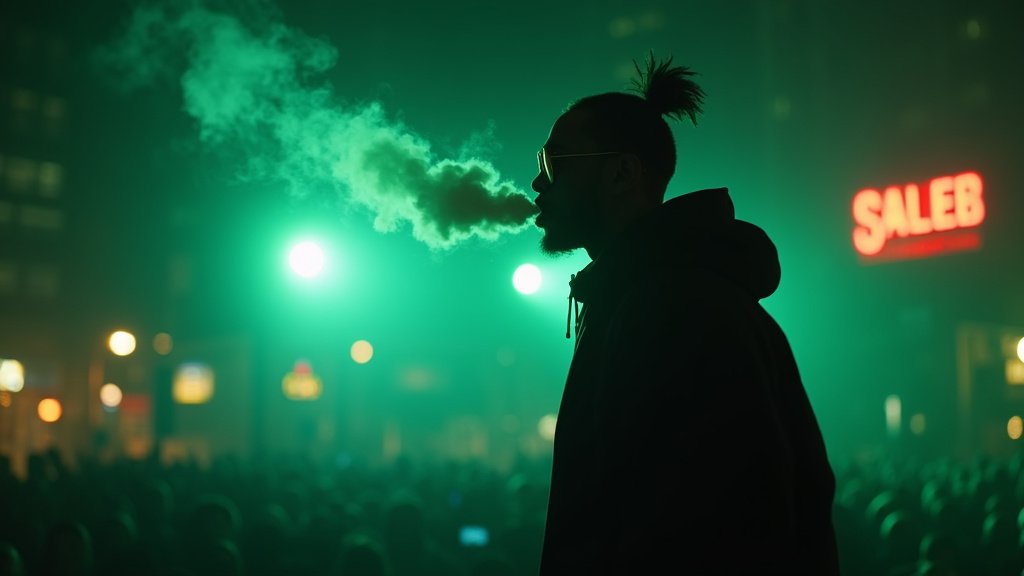Afrobeat is a captivating music genre that has burst beyond its African roots to capture the world’s attention. Created by the iconic Nigerian musician Fela Kuti in the late 1960s, Afrobeat blends African rhythms with jazz, funk, and highlife to create a vibrant and politically charged sound. This article delves into the origins, key elements, cultural significance, and the expanding global influence of Afrobeat, highlighting its evolution, continued relevance, and unexpected intersections with cannabis culture.
The Birth and Evolution of Afrobeat
Origins and Early Development
Afrobeat emerged in Nigeria in the late 1960s, thanks to Fela Kuti’s innovative spirit. Fela combined traditional African music with elements of jazz, funk, and highlife, influenced by his exposure to these genres during his time in the United States. This fusion birthed a genre that was not only musically rich but also carried potent political messages. Fela’s Afrobeat became a medium to address issues like government corruption, social injustice, and human rights abuses.
Musical Influences and Growth
The genre’s foundation lies in highlife, a Ghanaian genre that merges West African rhythms with Western jazz. Fela’s travels across the US and the UK infused his music with soul, jazz, and funk, enriching the Afrobeat soundscape. By the 1970s, Afrobeat had grown popular in Nigeria and beyond, fueled by Fela’s electrifying performances and his bold political statements through music. His band, Africa 70, played a crucial role in shaping the genre, with its robust brass sections, intricate percussion, and complex arrangements.
Key Elements and Cultural Impact
Rhythmic Complexity and Instrumentation
Afrobeat’s defining characteristic is its intricate rhythmic patterns, supported by a rich array of percussion instruments. Multiple drummers create a layered, hypnotic groove, while the bass and rhythm guitars lay the melodic groundwork. Brass instruments and keyboards add further depth, allowing for extended instrumental sections where musicians can showcase their prowess. These elements make Afrobeat not only a listening experience but also a physical one, encouraging dance and movement.
Political and Social Commentary
Afrobeat’s lyrics are deeply rooted in social and political issues. Fela Kuti used his music as a weapon against the oppressive Nigerian regime, addressing themes like poverty, inequality, and corruption. This tradition continues with modern Afrobeat artists, who use their platforms to highlight ongoing social issues and advocate for change. The genre’s call-and-response vocal style, often featuring Fela’s powerful voice leading and a chorus of responses, amplifies its message and engages listeners in the dialogue.
Cultural Impact and Movement
The Kalakuta Republic and Cultural Movement
Afrobeat is more than just a music genre; it embodies a cultural movement that promotes African pride, resistance to oppression, and social justice. Fela Kuti’s establishment of the Kalakuta Republic in Lagos, a communal space for artistic and political expression, exemplified this ethos. The Afrobeat movement has inspired a sense of unity and identity among Africans and the African diaspora, influencing various aspects of contemporary African culture, including dance, fashion, and visual arts.
Intersections with Cannabis Culture
The cultural influence of Afrobeat extends to its intersections with cannabis culture. Fela Kuti himself was an outspoken advocate for cannabis use, viewing it as a natural and beneficial substance. This advocacy is reflected in his music and personal lifestyle, where cannabis played a role in his creative process and communal gatherings at the Kalakuta Republic. The connection between Afrobeat and cannabis culture has continued into the modern era, with many Afrobeat artists openly celebrating cannabis as part of their lifestyle and artistic expression.
Kingmaker Cannabis and New Projects
In a contemporary context, the relationship between Afrobeat and cannabis culture is being explored through new projects and collaborations. Kingmaker Cannabis, a brand known for its premium cannabis products, has announced an exciting Afrobeat project featuring Grammy-winning reggae artist Mykal Rose and producer William Moseley. This collaboration aims to fuse the rich musical traditions of Afrobeat with the cultural and sensory experiences associated with cannabis, offering a unique artistic venture that bridges music and lifestyle.
Global Influence and Modern Popularity
International Recognition and Collaborations
Afrobeat’s influence has grown exponentially, with artists like Burna Boy, Wizkid, and Davido bringing the genre to global audiences. These artists have achieved international fame through collaborations with Western musicians and performances at major music festivals. Burna Boy’s Grammy win for Best Global Music Album in 2021 marked a significant milestone, highlighting Afrobeat’s acceptance and celebration on the world stage.
Social Media and Streaming Platforms
The rise of digital platforms has further propelled Afrobeat’s popularity. Streaming services like Spotify, Apple Music, and YouTube have made Afrobeat accessible to a worldwide audience. Social media platforms like TikTok and Instagram have played a crucial role in spreading the genre, with viral challenges and dance videos engaging a global community of listeners. This digital presence has introduced Afrobeat to younger generations, ensuring its continued growth and evolution.
Educational and Cultural Programs
Afrobeat’s influence extends into education and cultural programs. Workshops, lectures, and courses on Afrobeat and its history are now offered at various institutions around the world. These programs aim to educate people about the genre’s origins, its cultural significance, and its impact on global music. Educational initiatives ensure that the legacy of Afrobeat is preserved and appreciated by future generations.
Festivals and Live Performances
Afrobeat has also made its mark on the global festival circuit. Events like the Afro Nation festival, which takes place in locations like Portugal, Ghana, and Puerto Rico, celebrate Afrobeat and its related genres, attracting thousands of fans from around the world. These festivals provide a platform for Afrobeat artists to showcase their music and connect with a diverse audience. The vibrant live performances at these festivals highlight Afrobeat’s energetic and communal nature, fostering a sense of unity and celebration among attendees.
Conclusion
Afrobeat’s journey from the streets of Lagos to global stages is a testament to its powerful rhythms, profound lyrics, and cultural significance. Pioneered by Fela Kuti, Afrobeat remains a dynamic and influential force in the music world. Its ability to blend rich musical traditions with contemporary issues and innovations ensures its continued relevance and impact. As the genre evolves, it continues to inspire and unite people worldwide, celebrating African culture and advocating for social justice.






